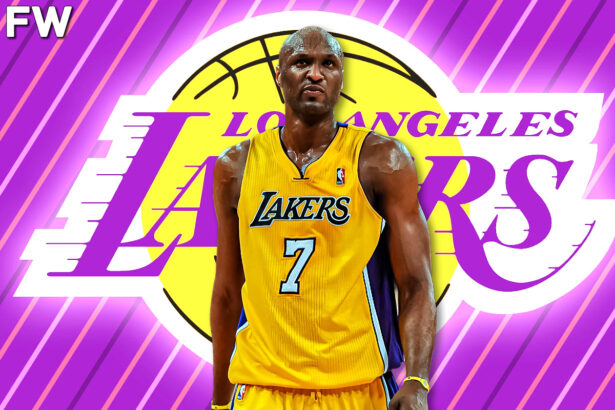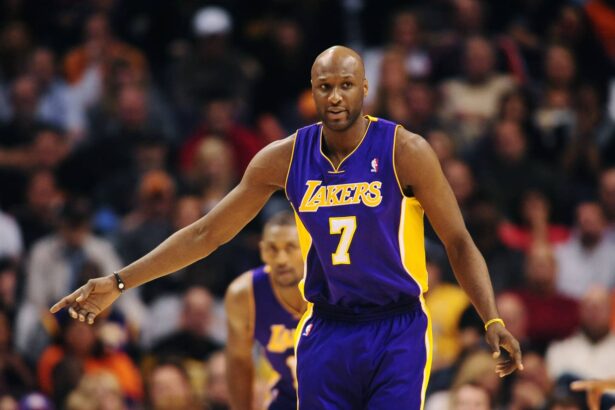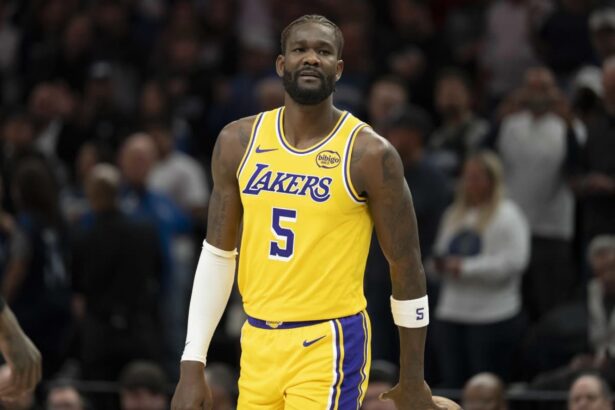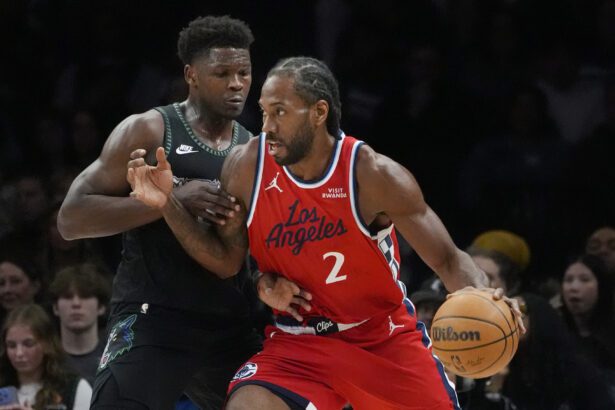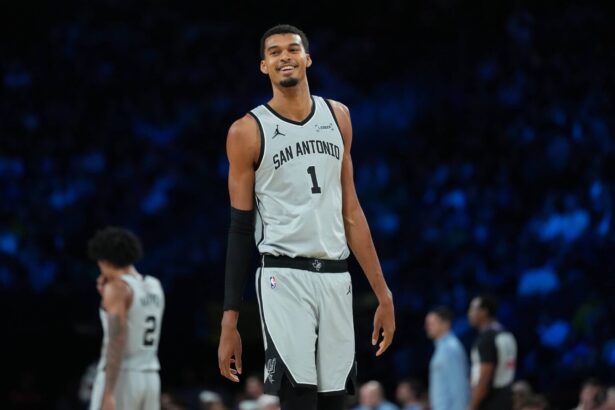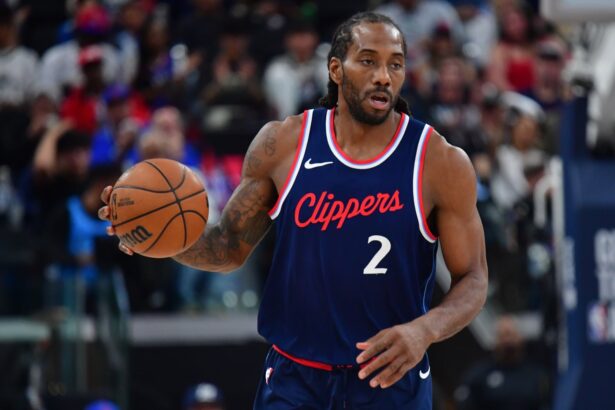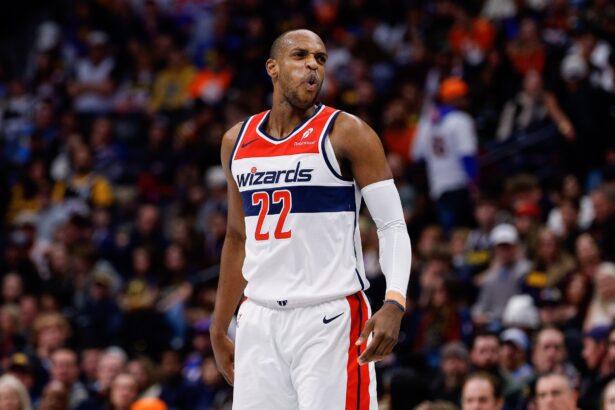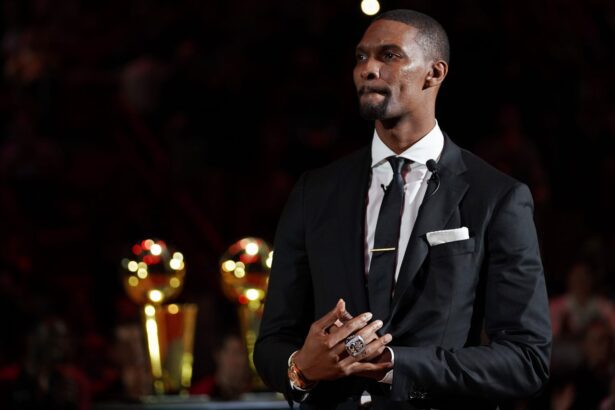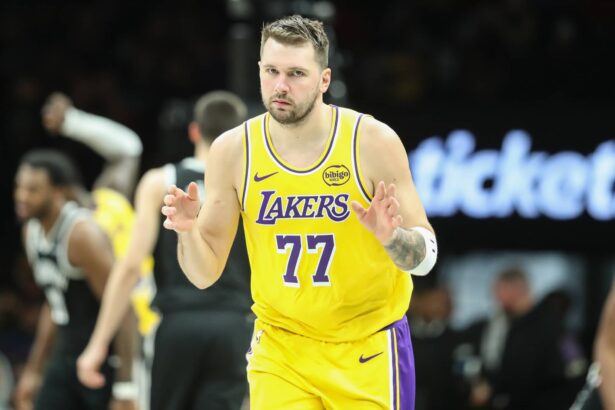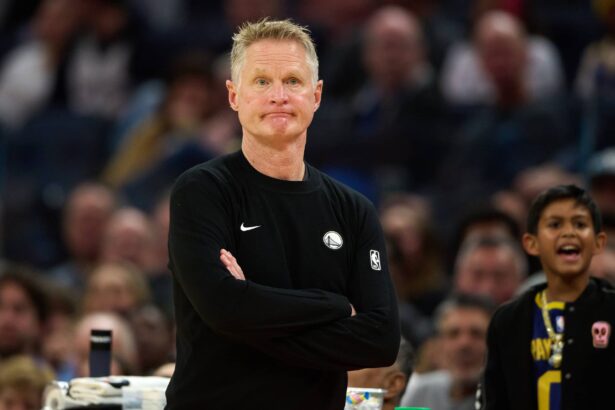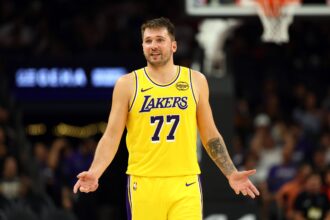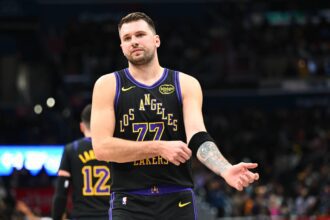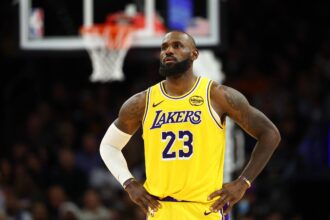The 2003 NBA Draft class stands as a hallowed chapter in the league’s history, distinguished by the emergence of basketball legends who have left an indelible mark on the sport. Spearheaded by iconic figures like LeBron James, Dwyane Wade, Carmelo Anthony, and Chris Bosh, this draft class transcended mere athletic achievement, shaping the narrative of the NBA for more than two decades.
In this retrospective journey, we delve into the tiers of this exceptional draft class, celebrating the remarkable careers, achievements, and enduring impact of its standout players. While LeBron James remains the lone active player from this legendary cohort, the collective legacy of the 2003 class continues to resonate as a defining era in the ever-evolving NBA game.
Tier 7
Darko Milicic, Keith Bogans, Willie Green, Brian Cook, Michael Sweetney
In Tier 7, we delve into the narratives of players whose NBA trajectories were marked by unmet expectations, leaving a lingering sense of unfulfilled potential. At the forefront of this tier stands Darko Milicic, the second overall pick in the 2003 NBA Draft.
Regrettably, Milicic failed to make the impact anticipated by such a high selection. His career stats tell a story of unrealized promise, with averages of 6.0 points, 4.2 rebounds, and 1.3 blocks per game over a decade-long career. Darko’s struggle to adapt to the NBA’s demands and the subsequent journey through several teams cast a shadow over his early potential, making him one of the most notable draft busts in league history.
Keith Bogans and Willie Green took divergent paths but found stability as role players in the league. Bogans, a shooting guard known for his defensive prowess, compiled career averages of 6.3 points, 2.7 rebounds, and 1.3 assists over 11 seasons. While not a star, Bogans’ contributions were notable, particularly during his time with the Chicago Bulls and Orlando Magic. On the other hand, Willie Green, primarily a shooting guard, played 12 seasons, amassing averages of 8.3 points, 1.8 rebounds, and 1.4 assists. Green’s longevity in the league attests to his value as a reliable role player.
Brian Cook and Michael Sweetney round out Tier 7, representing players who faced challenges in securing a lasting spot in the competitive NBA landscape. Brian Cook, a power forward, spent 10 seasons in the league, averaging 6.2 points and 2.9 rebounds per game. While displaying occasional scoring bursts, Cook struggled with consistency, hindering his ability to establish a more significant presence.
Similarly, Michael Sweetney faced difficulties translating his college success to the professional stage. Sweetney’s career spanned five seasons, during which he posted averages of 6.5 points and 4.5 rebounds per game. Unfortunately, both players found it challenging to overcome the hurdles and carve out a lasting legacy in the NBA, contributing to the overarching narrative of unfulfilled potential.
Tier 6
TJ Ford, Luke Ridnour, Travis Outlaw, Jason Kapono, Luke Walton
In Tier 6, we shift our focus to a diverse group of players who, while not reaching the pinnacle of NBA stardom, carved out respectable careers and left their mark on the league. TJ Ford, a point guard with electrifying speed and court vision, showcased his skills over eight seasons, compiling career averages of 11.2 points, 5.8 assists, and 3.1 rebounds per game. Ford’s impact was felt primarily with the Milwaukee Bucks and Toronto Raptors, where he displayed the ability to orchestrate offenses and contribute as a playmaker.
Luke Ridnour, another point guard, exhibited a steady and reliable presence throughout his 12-season career. With averages of 9.3 points, 4.5 assists, and 2.3 rebounds per game, Ridnour made meaningful contributions to multiple teams, including the Seattle SuperSonics, Milwaukee Bucks, and Minnesota Timberwolves. His longevity and consistency underscored his value as a dependable floor general, even if he didn’t headline the marquee.
Travis Outlaw found success as a reliable scorer off the bench during his 11-season NBA tenure. Averaging 8.5 points and 3.2 rebounds per game, Outlaw’s impact extended beyond statistical contributions, as he became known for his defensive versatility and ability to stretch the floor. His journey included stints with the Portland Trail Blazers and the Sacramento Kings, among others.
Jason Kapono, a sharpshooting small forward, made his mark as one of the league’s premier three-point specialists. Over his nine-season career, Kapono averaged 6.7 points per game while shooting an impressive 43.4% from beyond the arc. Kapono’s ability to space the floor and provide instant offense off the bench earned him recognition, including two consecutive Three-Point Shootout titles in 2007 and 2008.
Transitioning from a successful playing career to coaching, Luke Walton showcased his basketball acumen. As a forward, Walton played 10 seasons in the NBA, averaging 4.7 points, 2.8 rebounds, and 2.3 assists per game. While his stats may not dazzle, Walton’s basketball IQ and understanding of the game became evident as he ventured into coaching roles, ultimately becoming the head coach of the Los Angeles Lakers and Sacramento Kings after being a great assistant coach on Golden State’s iconic 73-9 record in 2016.
Tier 5
Carlos Delfino, Leandro Barbosa, Kirk Hinrich, Kendrick Perkins, Steve Blake, James Jones, Matt Bonner, Josh Howard
Carlos Delfino, a skilled Argentine swingman, showcased his versatility over an eight-season span. Averaging 8.1 points, 3.6 rebounds, and 1.7 assists per game, Delfino became known for his three-point shooting and defensive capabilities, leaving a lasting impact on teams like the Detroit Pistons and Milwaukee Bucks.
The Brazilian Blur, Leandro Barboza, epitomized speed and scoring prowess throughout his 14-season career. Averaging 10.6 points, 2.1 rebounds, and 2.0 assists per game, Barbosa’s dynamic play style earned him the Sixth Man of the Year award in the 2006-2007 season. His energy off the bench and ability to change the game’s tempo made him a valuable asset to championship-caliber teams, including the Phoenix Suns and the Golden State Warriors.
Kirk Hinrich played a crucial role for the Chicago Bulls during his 13 seasons in the league. Known for his defensive tenacity and leadership, Hinrich contributed 10.9 points, 3.9 assists, and 3.4 rebounds per game. His impact extended beyond statistics, as he became a linchpin for the Bulls’ defensive identity.
As a formidable presence in the paint, Kendrick Perkins anchored defenses during his 15-season career. Averaging 5.4 points, 5.8 rebounds, and 1.2 blocks per game, Perkins’ toughness and shot-blocking prowess were instrumental in helping the Boston Celtics secure an NBA championship in 2008. His physicality and defensive mindset left an indelible mark on the teams he represented.
Steve Blake, a journeyman point guard, showcased his playmaking abilities and three-point shooting over 13 NBA seasons. Averaging 6.0 points, 4.1 assists, and 1.2 steals per game, Blake’s reliability as a floor general made him a valuable asset for various teams, including the Portland Trail Blazers, Los Angeles Lakers, and Golden State Warriors.
James Jones etched his name in NBA history with a three-point shooting title in 2011. Over his 14-season career, Jones provided floor spacing and veteran leadership, winning multiple championships alongside LeBron James in Miami and Cleveland.
Matt Bonner, affectionately known as the Red Rocket, carved out a niche as a three-point specialist during his 12-season career. Averaging 5.8 points and 3.0 rebounds per game, Bonner’s shooting prowess, particularly from beyond the arc, made him a valuable role player for the San Antonio Spurs, where he contributed to two NBA championships.
Josh Howard, a versatile forward, exhibited scoring and defensive capabilities during his 10-season tenure. Averaging 14.3 points, 5.7 rebounds, and 1.4 steals per game, Howard played a pivotal role for the Dallas Mavericks, earning an All-Star nod in 2007 and contributing to the team’s NBA Finals run in 2006.
Tier 4
Udonis Haslem, David West, Kyle Korver, Zaza Pachulia, Chris Kaman, Nick Collison, Boris Diaw, Mo Williams
Udonis Haslem concluded an illustrious 20-year career last season, spending every one with the Miami Heat. The consummate team player, Haslem provided leadership, tenacity, and a blue-collar work ethic. While not known for flashy statistics, his impact on and off the court was immeasurable, particularly during Miami’s championship years. Haslem’s loyalty and dedication to the Heat organization define a rare and cherished era of sustained success.
David West, a power forward known for his physicality and mid-range scoring, enjoyed a distinguished 15-season career. Averaging 13.6 points, 6.4 rebounds, and 2.2 assists per game, West made two All-Star appearances and played pivotal roles for the New Orleans Hornets, the Indiana Pacers, and the Golden State Warriors, where he became a two-time champion in 2017 and 2018. His leadership and toughness in the paint were crucial elements in shaping the identity of the teams he represented.
Kyle Korver, one of the greatest three-point marksmen in NBA history, had a career spanning 17 seasons. Averaging 9.7 points, 3.0 rebounds, and 1.7 assists per game, Korver’s shooting proficiency, especially from beyond the arc, was unparalleled. His impact extended beyond statistics, as he became a valuable asset for playoff-contending teams, including the Atlanta Hawks and the Cleveland Cavaliers later in his career.
Zaza Pachulia, a journeyman center, played 16 seasons in the NBA, providing a physical presence in the paint. Averaging 6.8 points and 5.8 rebounds per game, Pachulia’s contributions were often understated but pivotal. Although controversial in 2017, he played an essential role in the Golden State Warriors championship runs, showcasing his ability to complement star-studded rosters with his unselfish play.
Chris Kaman, a skilled and versatile center, had a productive 13-season career. Averaging 11.2 points, 7.6 rebounds, and 1.4 blocks per game, Kaman’s impact extended beyond individual statistics. His presence in the paint, both offensively and defensively, made him a reliable contributor for teams like the Los Angeles Clippers and the Dallas Mavericks.
Nick Collison, a power forward and center, spent his entire 15-season career with the Seattle SuperSonics and later the Oklahoma City Thunder. Although not a statistical standout, Collison’s intangibles, basketball IQ, and work ethic made him a beloved figure in Oklahoma City. His leadership and selfless play embodied the Thunder’s culture during their early years and earned him the retirement of his no. 4 jersey in OKC.
A versatile forward known for his basketball IQ and playmaking ability, Boris Diaw played 14 seasons in the NBA. Averaging 8.6 points, 4.4 rebounds, and 4.5 assists per game, Diaw’s impact went beyond traditional forward roles. His unique skill set made him a key contributor for the Phoenix Suns and the San Antonio Spurs, earning him a reputation as a cerebral player and a key figure in Popovich’s championship Spurs team in 2014.
Mo Williams, a point guard with scoring flair, had a 13-season career in the NBA. Averaging 13.2 points, 2.8 rebounds, and 4.9 assists per game, Williams made an All-Star appearance in 2009. Known for his scoring bursts and playmaking abilities, he played a crucial role for multiple teams, including the Cleveland Cavaliers during LeBron James’ first stint.
Tier 3
Chris Bosh, Carmelo Anthony
A key figure in the Miami Heat’s Big Three era, Chris Bosh emerged as one of the most versatile and skilled power forwards in the league. Over his 13-season career, Bosh averaged 19.2 points, 8.5 rebounds, and 2.0 assists per game. An 11-time All-Star, Bosh played a crucial role in two NBA championships alongside LeBron James and Dwyane Wade. His ability to stretch the floor, defend, and contribute in various facets of the game solidified his status as one of the premier frontcourt players of his generation.
A prolific scorer and 10-time All-Star, Carmelo Anthony announced his retirement in 2023 after a remarkable 19-season career. Averaging 23.8 points, 6.5 rebounds, and 2.9 assists per game, Anthony’s offensive prowess was unparalleled. Despite not securing an NBA championship, his impact on the court was undeniable. Anthony showcased his scoring ability for various teams, including the Denver Nuggets, New York Knicks, Los Angeles Lakers, and Portland Trail Blazers. His scoring titles, Olympic success, and memorable moments on the hardwood solidify his legacy as one of the greatest pure scorers in NBA history.
Tier 2
Dwyane Wade
In Tier 2, we shine the spotlight on a player who transcended the realm of mere basketball stardom to become a cultural icon—Dwyane Wade. A 13-time NBA All-Star and three-time NBA champion, Wade’s impact on the Miami Heat and the league at large is immeasurable.
Over his illustrious 16-season career, Wade averaged 22.0 points, 4.7 rebounds, and 5.4 assists per game. As the centerpiece of the Miami Heat’s “Big Three” alongside LeBron James and Chris Bosh, Wade played an integral role in bringing two more championships to South Beach in 2012 and 2013.
Wade’s list of accomplishments is extensive, including an NBA Finals MVP award in 2006, where he led the Heat to their first championship. His ability to score at will, coupled with his defensive prowess, made him one of the most complete shooting guards in NBA history.
Wade’s iconic moments, from his Eurostep maneuvers to clutch performances in playoff games, elevated him to legendary status. His role on the Heat, impact on the international scale, and electric style of play made him one of the All-Time greats in the sport.
Tier 1
LeBron James
Elevating the 2003 NBA Draft class to unprecedented heights is the incomparable LeBron James. His extraordinary career, spanning an incredible 21 seasons with the Cleveland Cavaliers, Miami Heat, and Los Angeles Lakers, has set a standard of excellence that transcends statistical achievements.
With an average of 27.2 points, 7.5 rebounds, and 7.3 assists in 1,439 regular-season games, LeBron’s on-court prowess is unmatched. Selected for an impressive 19 All-Star games, he’s been honored with the Rookie of the Year award, 4 MVP awards, 4 Finals MVP awards, and has clinched 4 NBA championships.
LeBron James stands as the all-time leading scorer in NBA history, a testament to his scoring versatility and enduring dominance on the court. Whether on or off the hardwood, LeBron’s legacy is one of unparalleled greatness and an enduring commitment to making a positive impact everywhere.






